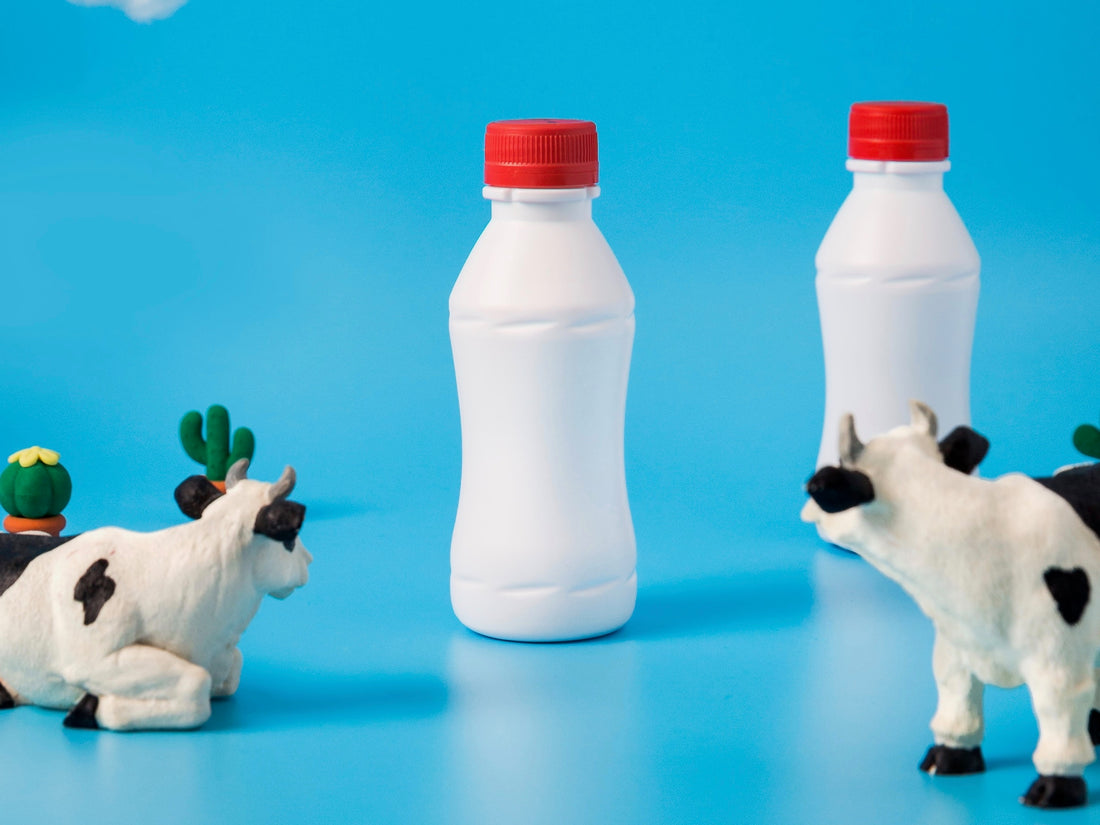What is Whey? Learn here.
What is Whey?
Simply put, whey is a by-product of the cheesemaking process. Cheese is made by coagulating milk, and the watery part that is left over is called whey. Cheesemakers discarded the whey for centuries before recently realizing it can have commercial value as a protein supplement. You've probably had the experience of opening a container of yogurt to discover a watery solution sitting on top. That is whey.
The protein breakdown in cow’s milk is 20% whey and 80% casein (another form of protein). In human milk, the breakdown is 60% whey and 40% casein, which is why many believe that whey protein is the preferable source of protein in milk.
Does Whey Protein Contain Lactose?
You bet. The amount of lactose that is found in whey protein powder products depends on the way (no pun intended) that it is processed. Whey products that are more processed can have minimal amounts of lactose (the sugar found in milk).
So, if you're lactose intolerant, you will likely feel the same discomfort when you consume whey products that have not undergone advanced processing techniques (see below for different types of whey protein). If you get an upset stomach or experience discomfort from consuming dairy products, you might be lactose intolerant or have a milk allergy. Lactose intolerance is simply a lack of the enzyme "lactase" that breaks down lactose in your body. So, your body doesn’t know what to do with the lactose, and it passes undigested. This causes mild to severe digestive issues depending on the person. A milk allergy is an allergic reaction to the proteins in milk (whey or casein). Whether you experience one or the other, it is probably worthwhile to avoid whey protein products and consider plant-based protein supplements instead.
How is Whey Protein Produced?
After the whey is separated from the cheese curds in the cheesemaking process, it's dried through a process that typically involves high heat and spraying. Whey protein on its own does not taste very good, so it is usually enhanced with vanilla, chocolate, or strawberry flavorings.
Three different types of whey protein:
- Whey Protein Concentrates – The most minimally processed whey protein product is a whey protein concentrate. These carry a wide range of protein by weight, anywhere from 29% to 89% (3x the protein of others). These products still contain a lot of fat and carbohydrates in the form of lactose. The taste of milk is typically still prevalent.
- Whey Protein Isolates – These products undergo the most processing and remove almost all of the lactose and fat, but some usually still remains. Isolates are 90+% protein by weight, which is why they are found in some of the more pricey protein powders. A hint of milk flavor still exists in whey protein isolates.
- Whey Protein Hydrolysates – These products are predigested through a hydrolysis process that make the protein easier to absorb. These products are most expensive and most often used by doctors for infant formula or as treatment for some conditions where a patient needs to gain weight.
Should I include whey protein in my diet?
Whey protein contains a great range of essential amino acids that absorb well in the human body. If you are looking to gain muscle mass, increasing your protein intake can help you do that. However, it's important to know that whey is not the only option for achieving that goal, only one of them.
On the other hand, you need to decide if whey consumption agrees with your body. For many, it leaves them with a stomach ache (as it did for our Founder) and abdominal pain. In fact, approximately 65% of the adult human population has an impaired ability to process lactose due to a lower level of the enzyme lactase after infancy. With numbers like that, it is probably worthwhile to try eliminating lactose from your diet to see how it makes you feel.
What are some good alternatives to whey protein?
The good news is that there are many alternatives to increasing your protein intake. As time goes on and the demand grows, more brands are bringing plant-based options. From alternative milks to meats, meals, and snacks. More people are becoming aware that dairy doesn't agree with their body, but they still need the nutrition and protein to supplement it.
Fortunately, we at No Cow (here comes the shameless plug) included a plant-based protein blend in our products that have a complete profile of amino acids made up of a combination of brown rice and pea protein. Not to mention, we provide it in a convenient form that helps you maintain your protein goals, WITHOUT the issues that dairy can bring. If you're considering trying nutritious plant-based products, start with yours truly. It just might make you never reach for that jug of milk ever again.

